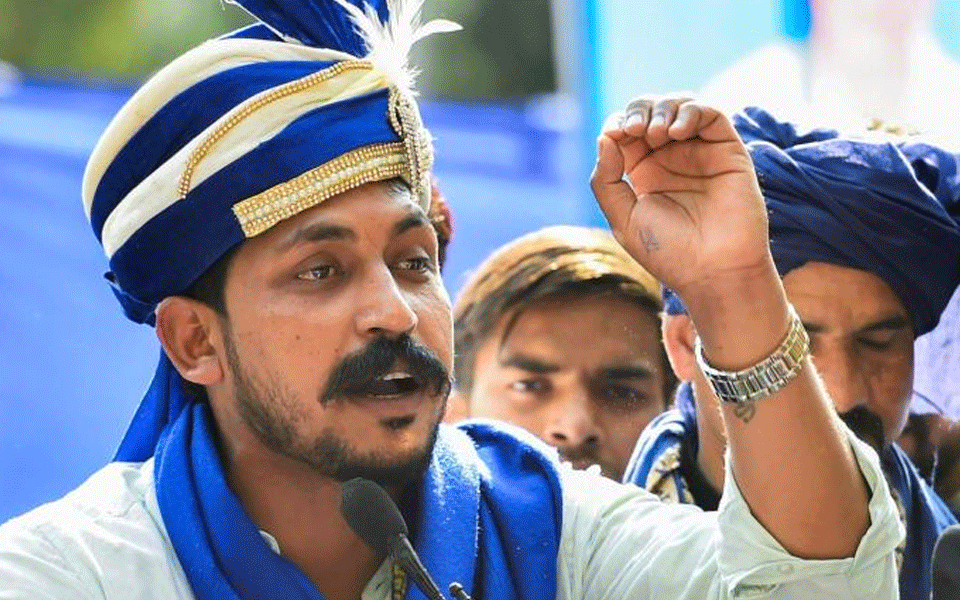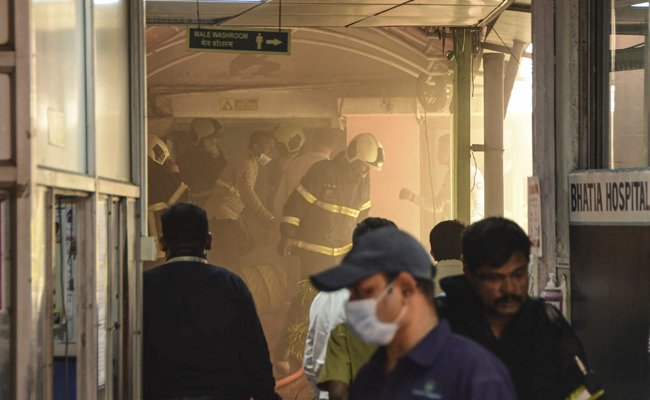New York: Five Indian-origin personalities, including Twitter's top lawyer Vijaya Gadde and UK's finance minister Rishi Sunak, and an Indian activist feature in TIME magazine's annual list of 100 emerging leaders who are shaping the future".
The 2021 TIME100 Next, released on Wednesday, is an expansion of TIME's flagship TIME100 franchise of the most influential people in the world and highlights 100 emerging leaders who are shaping the future.
Everyone on this list is poised to make history. And in fact, many already have, Dan Macsai, the editorial director of the TIME100, said.
Other Indian-origin personalities on the list are Instacart founder and CEO Apoorva Mehta, doctor and Executive Director of nonprofit Get Us PPE Shikha Gupta and founder of nonprofit Upsolve Rohan Pavuluri.
Bhim Army chief Chandra Shekhar Aazad is also on the list.
Sunak's profile in the TIME feature says that a little over a year ago, the 40-year old was an unknown junior minister in the British government but after he was named to lead Britain's Treasury last year, he quickly became the benevolent face of the government's response to the COVID-19 pandemic, approving large handouts for many citizens whose jobs were disrupted by the virus.
Sunak has however also been criticised for advocating early relaxation of lockdown rules, the profile said.
"Nonetheless, Sunak remains the country's most popular politician, according to the pollster YouGov. And he's the oddsmakers' favourite to be Britain's next Prime Minister, it added.
On Mehta, 34, the TIME profile said that in the initial days of the COVID-19 pandemic, Instacart faced a tidal wave of orders, as people with means opted en masse to pay the service's workers to buy groceries for them. Mehta describes that period as a wartime moment, it said.
However, later Instacart also faced new criticism about the way it treated its workers, including labyrinthine sick-pay policies, frequent rule changes for shoppers and demanding performance metrics. Instacart continues its focus on expansion.
The smartphone is the supermarket of the future. We are going to help co-create that, Mehta said in the TIME article.
The TIME profile described Gadde, 46, as one of Twitter's most powerful executives who was the one to convey the news to CEO Jack Dorsey that President Donald Trump's Twitter account had been suspended following the Capitol attack of January 6.
Dorsey "has delegated to her Twitter's content-moderation decisions; she was the architect of the 2019 decision to ban all political advertising, and is responsible for the warning labels that Twitter applied to COVID-19 and election-interference misinformation in 2020.
"While Twitter is still home to much misinformation and harassment, Gadde's influence is slowly turning the company into one that sees free speech not as sacrosanct, but as just one human right among many that need to be weighed against one another, the TIME profile said.
Aazad, 34, is the leader of the Bhim Army, which runs schools to help Dalits escape poverty through education and also practices a distinct brand of assertiveness, sweeping into villages on loud motorbikes to protect victims of caste-based violence and organising provocative demonstrations against discrimination, the TIME profile on him says.
Aazad and the Bhim army also spearheaded a campaign for justice in the case of the fatal gang-rape of a 19-year old Dalit woman in Uttar Pradesh's Hathras.
TIME said Gupta and her team stepped up to meet the growing demand for personal protective equipment for healthcare professionals at a time when there was a leadership vacuum from the White House.
In a crisis, small acts can make a big impact. And in extraordinary times, ordinary people, driven by service, can do extraordinary things. The early days of the COVID-19 pandemic were some of the darkest in America's history. A leadership vacuum from the White House contributed to health care professionals across the country lacking the personal protective equipment they needed to stay safe and save lives, it said.
Gupta, who wasn't on the White House Task Force or a governor or member of Congress, took action to solve the problem.
Gupta leads the Get Us PPE organisation and along with a group of medical professionals and team members, the organisation helped distribute more than 6.5 million pieces of PPE to frontline workers.
Pavuluri is the 25-year founder of the free online tool that helps users fill out bankruptcy forms on their own.
TIME said that as the COVID-19 pandemic brought varied economic hardships to Americans, filing for personal bankruptcy was seen as an effective way to eliminate debt but entailed high legal costs and complex paperwork.
Upsolve, which Pavuluri founded in 2018, has till date helped American users relieve more than USD 300 million in debt, the TIME profile of him said.
We've found a way to use technology to address a civil rights injustice at scale, Pavuluri said in the TIME profile.
Let the Truth be known. If you read VB and like VB, please be a VB Supporter and Help us deliver the Truth to one and all.
Johannesburg (AP): A 32-year-old suspect has been arrested in connection with a mass shooting which claimed the lives of 12 people including three children at an unlicensed pub earlier this month, South African police said on Monday.
The man is suspected of being one of the three people who opened fire on patrons in a pub at Saulsville township, west of South Africa's capital Pretoria, killing 12 people including three children aged 3, 12 and 16.
At least 13 people were also injured during the attack, whose motive remains unknown.
According to the police, the suspect was arrested on Sunday while traveling to Botlokwa in Limpopo province, more than 340 km from where the mass shooting took place on Dec 6.
An unlicensed firearm believed to have been used during the attack was recovered from the suspect's vehicle.
“The 32-year-old suspect was intercepted by Limpopo Tracking Team on the R101 Road in Westenburg precinct. During the arrest, the team recovered an unlicensed firearm, a hand gun, believed to have been used in the commission of the multiple murders. The firearm will be taken to the Forensic Science Laboratory for ballistic analysis,” police said in statement.
The suspect was arrested on the same day that another mass shooting at a pub took place in the Bekkersdal township, west of Johannesburg, in which nine people were killed and 10 wounded when unknown gunmen opened fire on patrons.
Police have since launched a search for the suspects.
South Africa has one of the highest homicide rates in the world and recorded more than 26,000 homicides in 2024 — an average of more than 70 a day. Firearms are by far the leading cause of death in homicides.
The country of 62 million people has relatively strict gun ownership laws, but many killings are committed with illegal guns, according to authorities.
According to police, mass shootings at unlicensed bars are becoming a serious problem. Police shut down more than 11,000 illegal taverns between April and September this year and arrested more than 18,000 people for involvement in illegal liquor sales.





